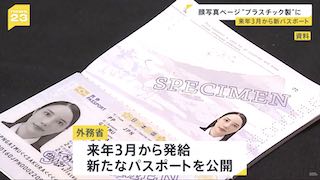Jul 22 (newsonjapan.com) - Japan is home to an incredible clash of cultures with modern technology living side by side with traditional values.
The country is known for its love of gambling, but there are strict regulations that govern the country's betting.
While Japan has relatively strict gambling regulations, recent changes have opened up the possibility for locals and tourists to enjoy more betting opportunities.
A Brief History of Gambling in Japan
Japan has a strong history of gambling regulation frameworks that determine exactly what is permitted. Government intervention saw a lottery that had been running for more than a century being banned in 1842. Almost 20 years later, in 1861, the Yokohama Race Club was created and introduced horse racing to the country.
1907 saw the implementation of the Chapter 23 criminal code that set strict guidelines on gambling in the country. Casinos and gambling were outlawed unless specifically government-approved. The Japan Racing Association was established by the Japanese national government in the same year.
The national government reintroduced a lottery in 1945 and in 1952, the U.S. brought boat racing over to Japan. But it wasn't until 1980 that boat racing was legalised as a parimutuel betting option for the Japanese.
Gambling on football via tote betting was legalised in 2001 and two years later international players were permitted to take part in the national lottery.
Moves to legalise Casinos started in 2015 with the submission of the Integrated Resort (IR) Enabling Act. This would see casinos allowed as part of a resort that includes entertainment venues, an international conference hall, and a hotel.
The bill was approved in 2018 with strict regulations that will minimise the risk of gambling addiction.
Current Japanese Gambling Regulations
Japan still has relatively stringent gambling regulations. However, integrated resorts have played a part in relaxing these laws to some extent.
It is worth noting that there are limitations placed on Japanese locals as to how many times they can visit casinos. A maximum of three visits per week or ten per month is in place for Japanese locals. Visitors will face an entrance fee of 6,000 yen.
Japanese gamblers can enjoy gambling on horse racing, boat racing, bike racing, and motorcycle racing. Winnings are tax-free as they all use a parimutuel betting system where the stakes are pooled. The house take and taxes are taken from the pooled total with the remaining amount being shared among the winners.
Lotteries including unique and selected number lotteries, as well as scratch cards, are run by local prefectures and the prize pot is made up of under 50% of the total take. The rest of the money taken by lotteries helps to fund charities and government organizations.
Pachinko is an exception to Japanese gambling laws and private companies are permitted to own and run parlours. However, players can't win money, instead, they get to exchange them for alternative prizes. These can be gold "tokens" that can then be traded for cash at neighbouring shops. These shops are typically run by parlours and serve as a workaround for regulations.
The legal age for gambling in Japan is set at 20. It is possible for people to play pachinko from the age of 18, however, there are negative connotations to this and it is discouraged.
While recently implemented casino gaming is regulated by the Japan Casino Regulatory Commission, the Japanese government and municipal bodies regulate other gambling activities.
Online Japanese Gambling Regulations
Many of Japan's betting regulations date back to before online gambling which leaves online casino regulations in Japan somewhat of a grey area. In terms of Japanese online gambling, there is only one official gambling portal. This is run by Toto, the same company that manages the lottery.
However, loose frameworks regarding the use of overseas gambling sites mean Japanese citizens can access and gamble on them. This provides a far greater range of markets for people to gamble on including international sports markets.
How Japanese Gambling Regulations Compare with the West
Gambling laws typically change when you visit different countries and continents. Comparing Japanese betting regulations with those in the West can be complicated, for example, the U.S. has different rules for different states.
Japan has a minimum age of 21 for gambling and 18 for Pachinko. U.S. states vary with the vast majority operating a minimum of 21 for casinos and 18 for lotteries and racing, however, this can change between states. All gambling operations in the UK have an over-18 policy.
Most U.S. states have legalised gambling in one form or another. Casinos and sports betting will regulatory frameworks will differ depending on location.
A decision by the Supreme Court in 2018 opened up the opportunity for sportsbooks to run legally across the country. This was only possible in Nevada previously and many states have since taken up this option.
Winnings are taxable in the U.S. and lottery agencies will typically withhold a designated amount from winnings that exceed $5,000. Other winnings should be declared on tax returns and losses can only be used to offset winnings.
In the UK, winnings are not taxed as this was axed in 2001. Previously, bettors had the option of paying an additional 9% on their stake or it being taken off their winnings this would mean that a £1 bet at 10/1 would have cost £1.09 with returns of £10 and the £1 stake. Alternatively, it could cost £1 with returns of £9.10 and the £1 stake.
This changed so betting companies had to pay the tax. The percentages differ in the Uk for how much is paid including 15% on sports betting, 12% on lottery stakes, and between 5% to 25% for slot machines. Casinos in the UK are taxed from 15% to 50%.
Like other gambling regulations in the U.S., their online gambling framework is determined by individual states. Some operate internal gaming divisions while some employ independent gaming and racing commissions.
Any operator of an online gambling operation in the UK must be licensed under the Gambling Act 2005. This is regulated by the Gambling Commission which issue licenses based on the gambling activities provided.
UK rules state that all online and offline gambling must be fair and open, protect vulnerable people and children, and offer help to those with gambling-related problems.
Conclusion
Gambling in Japan is more strictly regulated than in the West. However, recent changes, including the implementation of the Integrated Resort Enabling Act mean that these regulations could loosen.
The ability for Japanese citizens to gamble online with unregulated online sites also opens up far greater opportunities and could push the government to explore greater freedoms to make the most of potential revenue streams.
With a projected annual growth rate of 7.29% between 2023 and 2027, the future looks bright for Japanese gambling.















